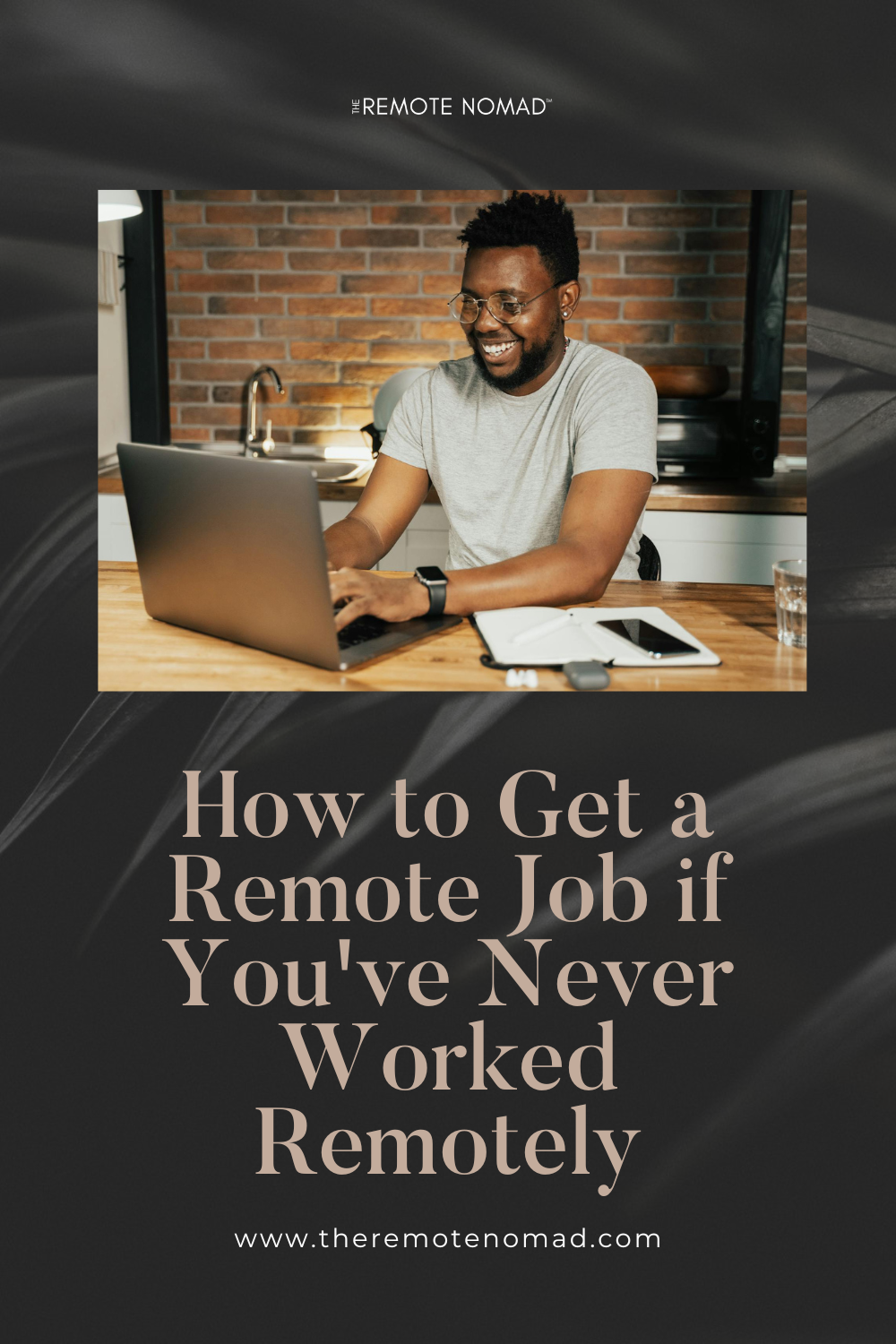How to Get a Remote Job if You've Never Worked Remotely
Sr. Career Specialist at FlexJobs Explains How to Land a Remote Job
Whether it's networking, your resume, or interviews, applying for a remote job isn't quite the same as applying for a traditional job. The best way to understand how to get a remote job is to get advice from those who know best. That's why I reached out to Brie Reynolds, Senior Career Specialist at FlexJobs, the award-winning site for telecommuting, flexible schedules, and freelance job listings. I interviewed Brie to get her insights on the remote work environment, and specifically, how those without remote work experience can increase their odds of getting a remote job.
Optimizing Your Resume and LinkedIn for Remote Jobs
Creating a Remote-Friendly Resume
Question: In general, how does a resume differ when applying for a remote job than a location-based job?
Answer: Remote resumes are more or less the same as traditional resumes, with a few small but important exceptions. Job seekers should add mentions of any previous remote work experience to their resumes. That may be in their Summary of Qualifications, next to job titles [ie, Director of Operations (remote position)], in job descriptions, or in their Technical Skills section (listing communication tools used for remote work, for example). Want to make sure your resume hits the mark every time? Grab my FREE Resume Revamp Checklist.
LinkedIn's Role in Landing a Remote Position
Question: How important of a role does LinkedIn play in the process of landing a remote role?
Answer: LinkedIn is important for job seekers, whether they’re going for an in-office or remote role. Through LinkedIn, you can not only discover people who may be able to help your job search, but you can see who’s already working remotely, and search for companies that hire remote workers.
Resume Changes Over the Year
Question: What has changed in resumes over the years that people should be aware of? Ie, I’ve heard you no longer need an objective
Answer: Definitely skip the objective, but add a Summary of Qualifications section at the top. No need to list your address anymore--phone, email, LinkedIn profile URL, and any other professional websites should all be listed. Technical/computer skills should include the types of communication tools you use, especially those useful to remote work. For example, Google Drive, Slack, Skype, GoToMeeting, Dropbox, etc.
Grab my FREE Resume Revamp Checklist.
Why Your Online Presence Matters More Than Ever
Question: How important is it to have a website or online presence?
Answer: It’s vital. Surveys show that anywhere between 85-95% of employers are searching for candidates online, either to find great job applicants or to screen people who’ve already applied. Either way, if you’re not online, you’re missing out.
Effectively Communicating with Employers During the Remote Job Search
Question: Any suggestions for the email that accompanies the resume? Does that email then become your cover letter or should you attach a cover letter as well? How much of an impact does the email have? What do people need to keep in mind for the subject line?
Answer: The email is definitely your cover letter; you don’t need to attach a separate letter. I always recommend tailoring every email/cover letter to the specific position and company it’s being sent to. Not all recruiters spend a lot of time reading those letters, but many do. I recently worked with a job seeker who was told by the hiring manager that he was offered an interview solely based on the great cover letter he’d written--and he was offered and accepted the job after several interviews! Cover letters should be direct, specific to the position and company, and should create clear connections between your experience and the company’s needs.
Skills/Experience
Top Remote Skills and Tools Employers Look For
Question: What skills, software or tools are you finding that are common requirements (or “nice-to-have”) among remote work job opportunities?
Answer: Organizations differ widely when it comes to what they use for remote work communication tools and software. Our survey of over 50 remote teams and companies found that Slack, Skype, and Google Chat are the most popular for instant messaging. Phone and video calls are done mainly through Skype, cell phones, Google Hangouts, Zoom.us, and even landlines. Screensharing happens through GoToMeeting, Join.me, Google Hangouts, and Skype.
No Remote Experience? Here’s What to Highlight Instead
Question: How critical is having remote work experience when it comes to landing a remote role? For those who don’t have remote work experience, what should they specifically focus on in their resume to make them a stronger candidate for a remote role?
Answer: The experience is nice to have, but not critical for most employers. What they really want to see is that you have the right skills and temperament to work from home. Their resumes and profiles should make it clear they are independent, focused workers who are able to manage their own time and workloads. They should also show that they’re excellent communicators, not afraid to ask questions, and solid with written and verbal communication.
Spoiler Alert: You’re More Qualified for Remote Jobs Than You Think (Here’s Why)
Remote Roles That Might Surprise You
Question: I find most people think remote roles are for developers, designers etc, but I know there are people working remotely with positions you wouldn’t typically think could be remote (ie, Lawyer). What’s a job posting you’ve seen that most people would be surprised to learn was remote?
Answer: There are so many surprising remote jobs out there! The top categories for remote work are medical and health, administrative, sales, computer & IT, customer service, education, nonprofit & philanthropy, and accounting & finance. Some surprising remote jobs include: remote neurosurgeon, high school sociology teacher, golf instructor, and executive-level roles like vice president of operations, executive director, and web search evaluator. We also see lots of interesting writing jobs, including Downton Abbey Guide and Plumbing Expert Writer.
If you’re just getting started, here are The 10 Most Popular Remote Jobs
Creating High-Performing Resumes for Remote Jobs
'Designed' Resume vs 'Traditional Text-Based' Resume
Question: What are your thoughts on a 'designed' resume vs a 'traditional text-based' resume?
Answer: I think the most important thing is to make sure your resume clearly lays out your best qualifications. You need to update it for every job you apply to, so if it’s too designed, it may be hard to update with new or different information quickly. But having a resume writer, or even a few professional friends, look at it can go a long way to making it a well-designed, easy-to-read document.
Want to make sure your resume hits the mark every time? Grab my FREE Resume Revamp Checklist. It breaks down exactly what to include (and what to avoid) to make your resume remote-ready, scannable, and aligned with what remote employers actually look for.
What to Expect in the Remote Hiring Process
The Hiring Process for a Remote Company
Question: What's the typical hiring process for remote companies?
Answer: Most companies use an Applicant Tracking System to screen resumes and letters before a human ever sees them, which is why it’s vital to incorporate keywords from the job description into your resume and cover letter. Whatever keywords the description has that match your qualifications, make sure those are on your resume!
But keep in mind, The Remote Job Search Process has changed a Lot. You can read more about it here.
How to Network Virtually with Remote-First Companies
Question: How do you suggest going about networking with remote companies in a virtual world, especially when that organization could literally be across the world. What’s the best approach?
Answer: Sending an email to a targeted person within a company is often the best way to make a connection. Ask them if they have five minutes for a quick chat because you’d love to hear about the work they do and how they got started. It’s very similar to networking in real life, just that your conversations will take place over the phone or on Skype.
Question: How do you suggest initially reaching out to an employer that operates remotely that isn’t necessarily hiring but you are interested in working for? How does someone go about a virtual “informational interview”?
Answer: Look on the company’s team page to find a specific person to send your email to. Someone from the HR team, or the manager of the team you’re interested in are the best people to contact. Your email should be fairly short and to the point. Explain who you are, why you’re interested in speaking with them and learning about their company, and what attracts you to their company. Explain that you understand they aren’t currently hiring, but you’d love the chance to talk with them more generally about the company and what they look for in applicants.
General Tips
What Makes a Strong Remote Job Candidate?
Question: What is common among the candidates who are succeeding in landing remote jobs? What are they doing right?
Answer: People who can convey both their personality and their qualifications virtually (ie, over the phone instead of in person) tend to do well with remote job interviews. Most remote job interviews are conducted over the phone, and some over video, with very few happening in person. If you aren’t prepared to interview well over the phone, your qualifications may not come across very well to the employer on the other end.
How Long Does It Take to Land a Remote Job?
Question: In your experience, how long does it typically take for someone to land a remote job?
Answer: This can vary widely depending on the industry and the career level of the person, but in general, 3-6 months is fairly standard for the length of a job search, remote or traditional.
Remote Work Trend
Is Remote Work Still Growing?
Question: How “fast” are employers making the shift to operating remotely/hiring for remote roles? In the last few years, have you noticed a large influx of remote positions becoming available, or has it been happening slowly?
Answer: Employers are definitely increasing their hiring for remote roles. While it’s still happening gradually, the pace seems to increase each year. At FlexJobs, for example, Remote job listings increased a solid 36 percent from 2014 to 2015, compared to a 26 percent increase from 2013 to 2014. We will be able to release 2016/2015 numbers at the end of January, and expect them to be just as strong.
Get a Remote Job
If you're looking for a remote job, you can get a FlexJobs membership, for $14.95 a month. Yes, it costs money, but it's well worth it. I've used it before and love it because it includes jobs beyond those just for designers and developers.
A huge shoutout to Brie Reynolds and the team at FlexJobs for helping coordinate and offering their time for this interview.
Looking for expert support to land your first remote job?
🎯 Watch my FREE Remote Job Masterclass to learn the 6-step system I teach my clients to go remote without burning out.





